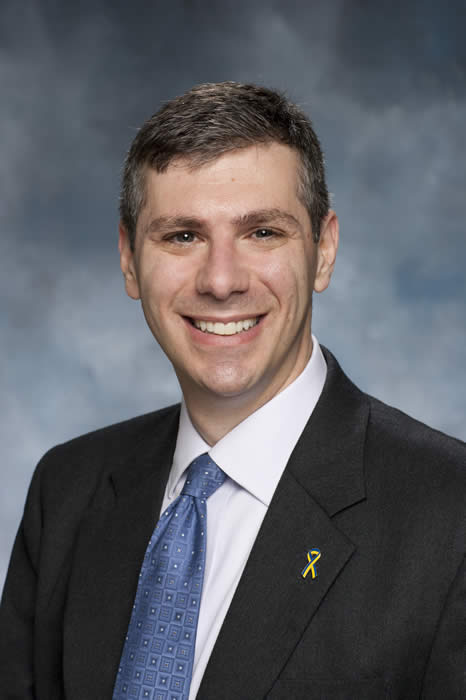Motivating Smokers with Mental Illness to Quit
Rutgers Study in Nicotine & Tobacco Research Named Editor’s Choice
New Brunswick, NJ – Significantly more individuals who smoke and have a serious mental illness made a sincere attempt to quit after receiving a single, 45-minute counseling session, compared to those who received an interactive educational intervention. According to a study published in Nicotine & Tobacco Research by investigators at Rutgers Robert Wood Johnson Medical School, the brief counseling session is more effective because it utilizes an adaptation of motivational interviewing, a goal-oriented, client-centered style facilitating change.
“Our research found that a brief motivational interviewing intervention is a reasonable approach for increasing quit attempts, even in smokers with serious mental illness who were not initially interested in quitting,” said Marc L. Steinberg, PhD, associate professor of psychiatry at Rutgers Robert Wood Johnson Medical School and lead author of the study. “The findings suggest that motivational interviewing may be a more productive approach than traditional educational interventions.
“Many healthcare providers assume that individuals with serious mental illness will only respond to very intensive interventions, and therefore, do nothing due to time constraints.” Dr. Steinberg continued. “On the contrary, our data indicates that smokers with serious mental illness will respond to even a very brief intervention.”
While motivational interviewing provided a benefit with regard to quit attempts, Dr. Steinberg and his colleagues found that many of the quit attempts did not translate into lasting abstinence.
“Individuals with serious mental illness are less likely to quit as compared to those without mental illness, and while we were able to use a brief intervention to encourage quit attempts, it is likely to require more intensive treatments, including counseling and pharmacotherapy, to produce longer-term abstinence,” said Dr. Steinberg.
Nicotine & Tobacco Research has named Dr. Steinberg’s study as the Editor’s Choice in the March issue.
“The results of the Steinberg study suggests the usefulness of motivational interviewing with adults with SMI [serious mental illness] as well. Future studies can build on these results to determine the best ways to motivate the greatest number of adults with SMI to make a quit attempt,” according to the journal’s editorial.
The study and editorial were published in advance online at http://ntr.oxfordjournals.org/content/18/3/243.
The study was supported by grants from the National Institute on Drug Abuse of the National Institutes of Health (5K23DA018203 and 1R34DA030652) awarded to Dr. Steinberg. Jill Williams, MD; Patricia Dooley Budsock, MA; and Nina Cooperman, PsyD, of Rutgers Robert Wood Johnson Medical School and Naomi Stahl of American University, contributed to the study.
About Rutgers Robert Wood Johnson Medical School
As one of the nation's leading comprehensive medical schools, Robert Wood Johnson Medical School is dedicated to the pursuit of excellence in education, research, health care delivery, and the promotion of community health. Robert Wood Johnson Medical School and Robert Wood Johnson University Hospital, the medical school's principal affiliate, comprise one of the nation's premier academic medical centers. In addition, Robert Wood Johnson Medical School has 34 other hospital affiliates and ambulatory care sites throughout the region.
Part of Rutgers, The State University of New Jersey, Robert Wood Johnson Medical School encompasses 19 basic science and clinical departments, hosts centers and institutes including The Cardiovascular Institute, the Child Health Institute of New Jersey, the Women’s Health Institute. The medical school maintains educational programs at the undergraduate, graduate and postgraduate levels on its campuses in New Brunswick and Piscataway and provides continuing education courses for health care professionals and community education programs. To learn more about Rutgers Robert Wood Johnson Medical School, visit rwjms.rutgers.edu. Find us online at www.facebook.com/RWJMedicalSchool and www.twitter.com/RWJMS.
|
